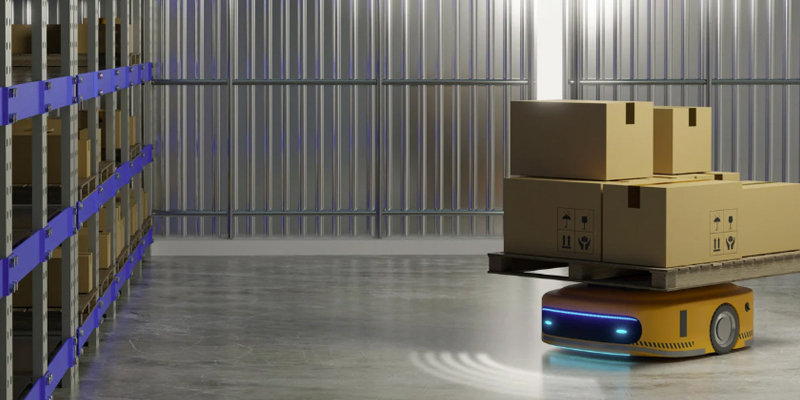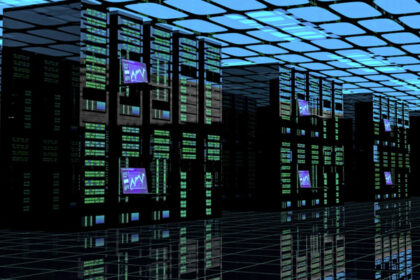Dubai has transformed from a regional trading hub into a global logistics center, exemplified by the Port of Jebel Ali, the world’s largest man-made harbor, which handles 13.7 million TEUs annually and connects over 150 ports. This maritime efficiency is complemented by Dubai International Airport (DXB) and Al Maktoum International Airport (DWC), both ranking among the busiest cargo airports globally, with DWC set to become the largest freight airport.
The logistics infrastructure in Dubai emphasizes integration, particularly through the Dubai Logistics City, which spans 21 square kilometers and connects air, sea, and land transportation. This hub provides advanced warehousing and distribution services, reinforcing Dubai’s status as a logistics powerhouse.
As businesses seek faster supply chain solutions, Dubai is adopting smart warehousing technologies like automated storage and IoT tracking systems. With strong government support, the digital transformation of logistics is underway, paving the way for significant industry advancements.
The Rise of Smart Warehousing
In recent years, the logistics sector has undergone a remarkable transformation with the introduction of smart warehousing. This approach leverages advanced technologies to boost efficiency, accuracy, and responsiveness in warehouse operations.
What is Smart Warehousing?
Smart warehousing utilizes automation, data analytics, and innovative warehouse management systems (WMS) to digitize and streamline processes. By incorporating technologies such as artificial intelligence (AI), robotics, and the Internet of Things (IoT), smart warehouses optimize the storage and distribution of goods, minimizing human error and enhancing operational efficiency.
Global Adoption Trends
The global transition to smart warehousing is driven by the need for greater efficiency and accuracy in supply chain management. In 2022, the smart warehousing market was valued at around USD 20.95 billion, with forecasts predicting a compound annual growth rate (CAGR) of 14.2% from 2023 to 2030. This growth is largely attributed to the increasing adoption of automation and robotics, the rapid rise of e-commerce, and the development of multi-channel distribution networks.
In 2023, North America led the smart warehousing market, holding over 31.5% of the share due to the quick adoption of innovative warehousing technologies and the presence of major industry players. The growing complexity of supply chains and the demand for faster order fulfillment have prompted companies globally to invest in smart warehousing solutions. By integrating AI and IoT, these systems enable real-time inventory tracking, predictive maintenance, and enhanced decision-making capabilities, resulting in improved customer satisfaction and lower operational costs.
As the market continues to evolve, the adoption of smart warehousing technologies is expected to become standard practice, transforming traditional warehouse operations and setting new efficiency benchmarks in supply chain management.
Dubai’s Leadership in Smart Warehousing
Dubai has positioned itself as a frontrunner in smart warehousing, fueled by strategic initiatives and substantial investments in advanced technologies to enhance its logistics sector. By incorporating AI, IoT, automation, and robotics, Dubai is not only improving supply chain efficiency but also establishing a new global standard for warehousing operations.
Strategic Initiatives
The smart city initiatives in Dubai are revolutionizing logistics through the implementation of cutting-edge technology and infrastructure development. The government’s Dubai 2040 Urban Master Plan emphasizes logistics innovation, focusing on automated warehousing, AI-based inventory management, and predictive analytics to optimize operations. Additionally, the Dubai Industrial Strategy 2030 seeks to accelerate technological adoption in logistics, further solidifying Dubai’s role as a global trade hub.
Key Developments in Smart Warehousing
-
5G-Enabled Warehousing in Dubai South
Dubai South has launched the UAE’s first 5G smart warehouse, marking a pivotal advancement in logistics automation. This facility employs Automated Guided Vehicles (AGVs) that function in real-time through ultra-fast 5G connectivity, ensuring efficient and seamless cargo management. This warehouse sets a new benchmark for low-latency, high-efficiency logistics operations.
-
Al Maya Group’s Automated Distribution Center
The Al Maya Group, one of the largest retail and distribution companies in the UAE, has implemented warehouse automation at its central distribution center. The facility utilizes the EPG ONE Warehouse Management System (WMS), enabling real-time inventory tracking, AI-driven demand forecasting, and temperature-controlled storage for perishables. It also ensures FIFO (First In, First Out) processing to reduce waste.
-
Arvato’s AI-Driven Logistics Hub in Dubai Logistics City
Arvato, a global supply chain management firm, has recently opened an AI-enabled logistics hub in Dubai Logistics City. This facility focuses on automated order fulfillment, RFID-based inventory tracking, and robotic sorting solutions, serving e-commerce, pharmaceutical, and retail sectors while enhancing efficiency and lowering operational costs.
-
DP World’s Advanced Warehousing at Jebel Ali Free Zone (JAFZA)
DP World, Dubai’s leading trade facilitator, has introduced robotic process automation (RPA) and AI-driven supply chain solutions at its Jebel Ali Free Zone facilities. The implementation of blockchain technology for real-time shipment tracking and automated storage and retrieval systems (AS/RS) enhances operational efficiency, aligning with Dubai’s vision for digital transformation in logistics.
-
SwiftCare Logistics’ Eco-Friendly Warehousing Solutions
SwiftCare Logistics has adopted sustainable warehousing technologies at its Dubai facilities, focusing on solar-powered storage systems, AI-driven energy management, and smart cooling solutions. These innovations not only contribute to sustainability goals but also enhance operational efficiency.

Benefits of Smart Warehousing in Dubai
Smart warehousing in Dubai provides a range of benefits that significantly enhance logistics and supply chain operations. The main advantages include:
Operational Efficiency
Implementing smart warehousing solutions significantly enhances operational efficiency. Automation technologies streamline tasks like picking, packing, and sorting, resulting in faster processing times and reduced reliance on manual labor. Research shows that smart warehouses can boost operational efficiency by as much as 30% while cutting labor costs by 40%.
Cost Reduction
Automation helps minimize errors and delays, leading to considerable cost savings. By decreasing human error and improving process accuracy, businesses can lower expenses related to returns, corrections, and delays. Furthermore, optimized resource utilization enhances overall cost efficiency.
Enhanced Accuracy
Smart warehousing utilizes real-time data analytics to improve the accuracy of inventory tracking and order processing. Technologies such as IoT sensors and RFID tags provide precise, current information, reducing discrepancies and ensuring accurate order fulfillment.
Improved Inventory Management
Real-time inventory tracking and monitoring optimize stock levels, preventing overstocking or stockouts and minimizing the risk of obsolescence. This proactive approach ensures efficient inventory management that aligns supply with demand.
Optimal Space Utilization
Advanced technologies facilitate the effective allocation of storage space, ensuring that frequently accessed items are strategically positioned for quick retrieval. This strategic arrangement maximizes throughput by reducing retrieval times and enhancing overall warehouse efficiency.
Real-Time Analytics and Insights
The integration of IoT sensors and advanced analytics software enables businesses to capture and process large volumes of data in real-time. This capability supports proactive maintenance and informed decision-making. Access to real-time data allows managers to identify bottlenecks, anticipate maintenance needs, and make data-driven decisions to optimize operations.
Challenges in Implementing Smart Warehousing
While smart warehousing solutions offer numerous benefits, they also present several challenges that organizations must address:
-
High Initial Investment
Transitioning to a smart warehouse requires significant capital for technology integration and infrastructure development. The costs associated with acquiring and installing advanced systems—such as automated guided vehicles (AGVs), robotics, and warehouse management software—can be substantial. Additionally, retrofitting existing facilities to accommodate these technologies may involve extensive modifications, further increasing expenses. This financial hurdle can be particularly challenging for small to medium-sized enterprises.
-
Skilled Workforce Shortage
The introduction of advanced technologies in warehouses creates a demand for a workforce skilled in managing and maintaining these innovations. However, there is often a lack of employees with the technical expertise needed to operate complex systems like robotics, IoT devices, and data analytics platforms. This skills gap can impede the effective implementation and operation of smart warehousing solutions. Organizations may need to invest in comprehensive training programs to upskill their current workforce or attract qualified talent, which can be both time-consuming and costly.
-
Data Security Concerns
The integration of interconnected systems in smart warehouses increases the need to protect sensitive data. With the growing use of IoT devices and data-driven technologies, warehouses generate vast amounts of information, including critical details about inventory, operations, and customer orders. Safeguarding this data from unauthorized access and ensuring compliance with privacy regulations is essential. Implementing robust cybersecurity measures—such as advanced encryption, secure network configurations, and regular system updates—is crucial to mitigate these risks.
-
Integration Complexity
Integrating new technologies with existing warehouse management systems poses significant challenges. Ensuring compatibility and seamless communication between various systems—such as warehouse management software, automated inventory control platforms, and IoT devices—requires effective integration strategies. Poor integration can result in data silos, inefficiencies, and increased operational costs. Careful planning and execution are necessary to establish a cohesive operational framework.
-
Scalability and Flexibility
Smart warehousing solutions must be designed to support future growth and evolving business needs. The ability to scale infrastructure, adapt to new technologies, and incorporate additional functionalities is crucial. A lack of scalability can lead to systems becoming outdated or unable to meet increased operational demands, resulting in inefficiencies and potential service disruptions. Organizations must ensure that their smart warehousing systems are flexible and scalable to remain competitive in a dynamic market.
Future Outlook
Dubai’s logistics sector is set for substantial growth, driven by strategic market forecasts, a strong focus on sustainability, and ongoing technological advancements.
Market Projections
The UAE logistics market is on a strong upward trajectory. According to SPER Market Research, it is expected to reach USD 25.19 billion by 2032, with a compound annual growth rate (CAGR) of 7.08%. This growth is fueled by the UAE’s strategic location along key transcontinental trade routes and its multi-modal connectivity, which enhances its freight forwarding capabilities.
Sustainability Initiatives
Dubai is leading the way in integrating sustainable practices into its logistics operations. The city has launched several major projects aimed at supporting economic development and promoting sustainable urban growth through smart city technologies. These initiatives are part of Dubai’s broader strategy to enhance environmental responsibility within the logistics sector.
Continuous Technological Advancements
The logistics industry in the UAE is undergoing a significant transformation due to the adoption of new technologies. Innovations such as automation, blockchain, and the Internet of Things (IoT) are being utilized to boost efficiency, improve customer experiences, and elevate service levels. Dubai’s commitment to embracing these cutting-edge solutions reinforces its position as a leader in smart warehousing and logistics.
As Dubai continues to invest in these areas, businesses will need to adopt smart warehousing solutions to remain competitive, reduce costs, and enhance operations in the rapidly evolving logistics landscape.










